“Sanctioned” Goods on Belarusian Shelves
10- 17.01.2022, 11:15
- 25,006
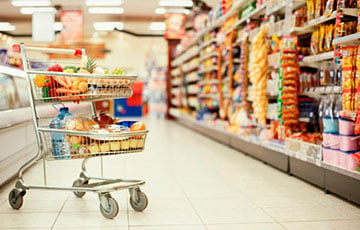
On January 1, 2022, a food embargo came into effect in Belarus.
A fairly large list of goods (including 18 major items - meat and meat products, sausages, fruit, vegetables, confectionery products, vitamins and dietary supplements, etc.) from the EU, the United States and Canada, Norway and Iceland, the UK and Northern Ireland, Albania, Northern Macedonia, Montenegro and Switzerland are now banned from importation into the country.
However, economists, explained in advance: "banned" products from stores will not disappear, and as far as possible, retailers will make stocks, but then (and the decision of the Council of Ministers has so far been calculated for six months) deficit is quite possible. For its part, the Ministry of Agriculture assured that the buyers had nothing to worry about. They will find other suppliers from friendly countries of the EEU, there is nothing to worry about.
Salidarnasts learned which countries importers have found to replace the usual products and how this search had affected the price. It monitored the shelves of major stores.
***
On a weekday afternoon near the district supermarket there is quiet and a bit sleepy - not even a hint of grocery rush.
However, after a thorough study of the fruit and vegetable assortment, one quickly understands the reasons for the lack of people. Firstly, it is expensive. The same mandarins and clementines, which noticeably rose in price before New Year and made people hurriedly make reserves, now almost everywhere have fallen in price. Instead, they still cost 5 rubles here.
Peppers from Azerbaijan cost 10-12 rubles per kilo, Russian cucumbers and tomatoes - 8 and 6 rubles respectively, while potatoes, cabbage, beets, carrots are Belarusian, but they are not cheap either - 1.5 to 2.5 rubles per kilo.
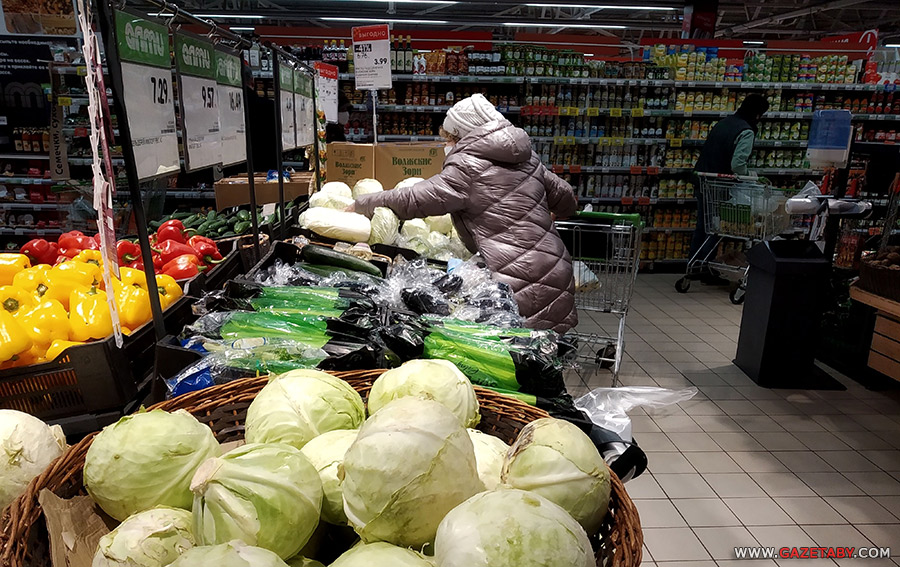
- Isn't that beets, no way! It says the elderly customer in anger, trying in vain to get the only cheap kind of beet in the bag, and adds sadly: - And boiled beet costs 6 rubles...
One notices quite Spanish lemons at 3 rubles and a few Polish apples at 2.5-3.5 rubles. The merchandiser girl explains that the lemons arrive that's why they are cheap, whereas this is the last batch of apples. Then they will sell Ukrainian and Belarusian ones.
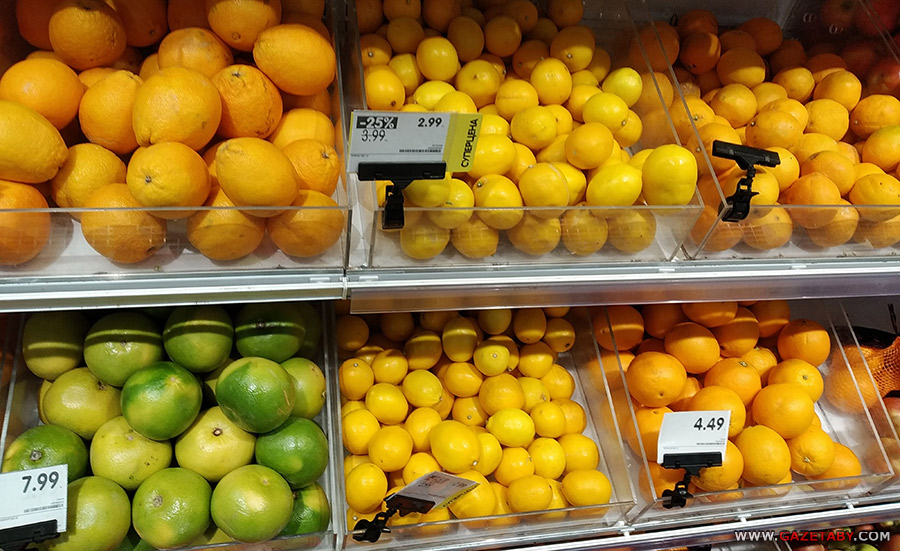
***
We find four sorts of Polish apples in neighbouring supermarkets.
- They are good, juicy and moderately sour," says a cheerful pensioner, filling the bag tightly. - Our apples are beaten up on the sides; their taste by February like cotton wool.
The tomatoes here are already "substituted" with those from friendly Turkey. They are no less expensive - up to 8.3 rubles per kilo. They are as firm as the beliefs of the officials from the Council of Ministers.
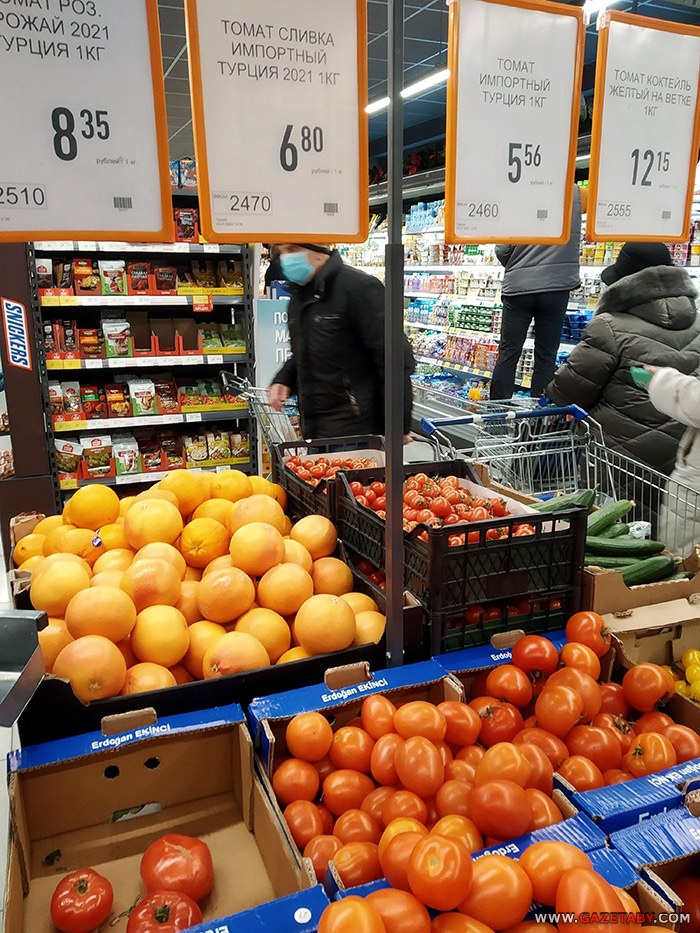
The shelves with sweets in large gift boxes and marshmallows from domestic producers disguise the absence of not only Swiss and German but even Polish competitors.
For example, the Russian Raffaello candies are so convincingly displayed on the stand that one can't immediately notice little of Ferrero Roche chocolates.
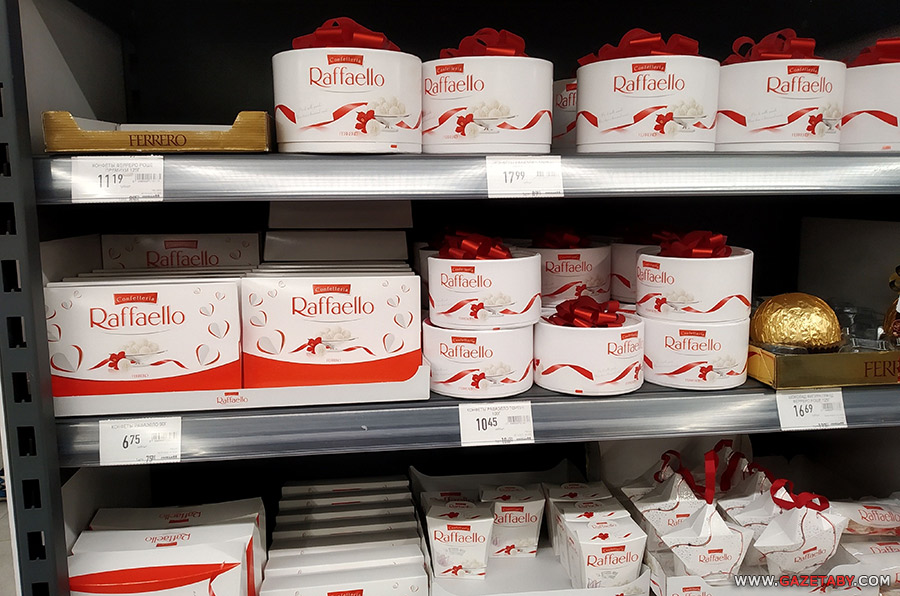
An energetic guy is looking for German Ritter Sport on the next stand, but something does not suit him.
- Tell me, is there only one type of Ritter Sport left? - he catches the saleswoman ping by.
- Yes," she nods.
- Uh," he says with discontent. - Five shelves of Belarusian chocolates. That's the import substitution.
But there are still plenty of frozen vegetable mixes from Poland - two-thirds of the refrigerator is occupied with them. To be fair, they have a shelf life of one year if stored properly, so it's quite possible that stores will hold out on stock and customers won't notice the shortage.
***
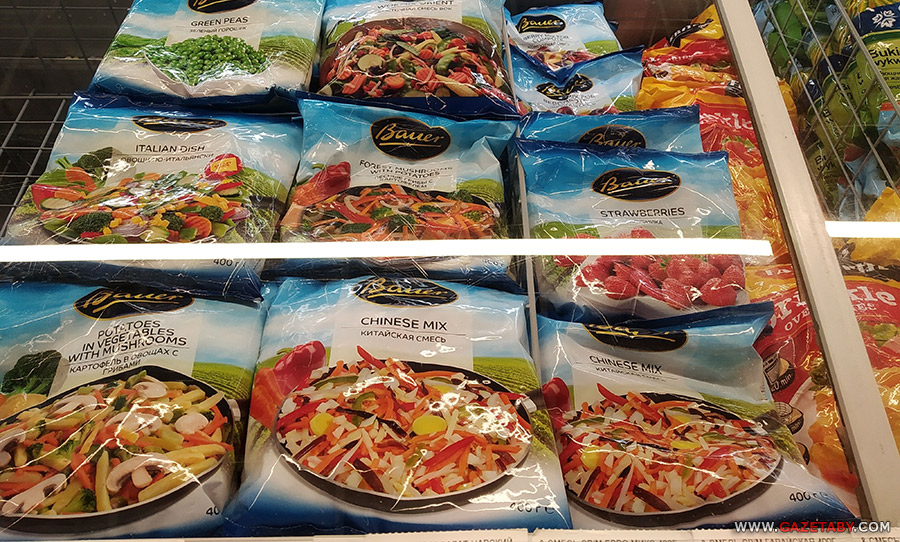
In the next store, there are only Polish apples, Spanish persimmons and suspiciously tired Dutch pears, the rest of the vegetables and fruits are quite from government-approved sources. But the prices... Boxes of Russian tomatoes at 10.6 rubles (!) are full.
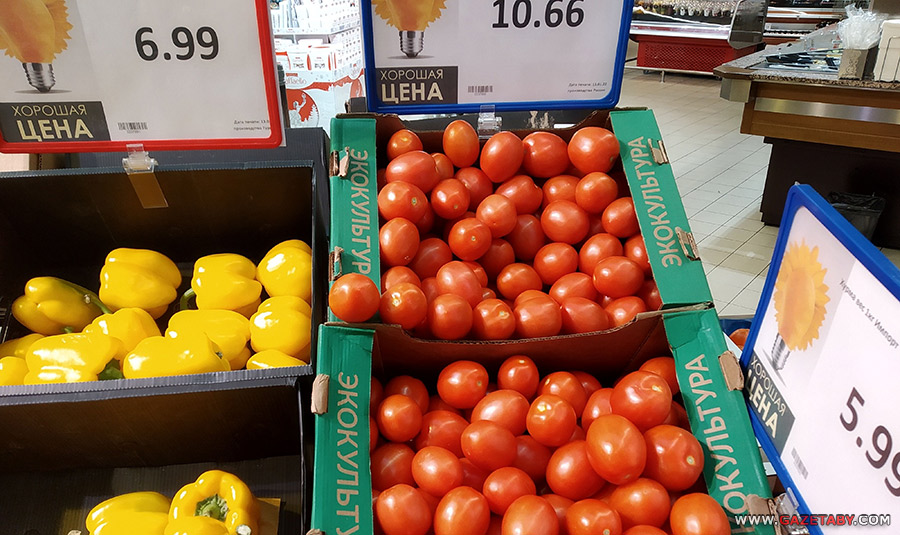
There is a wide selection of Belarusian cheese in the dairy department. All shelves are occupied by local producers, only one window is occupied by Lithuanian Djugas and a bit of Dutch Gouda.
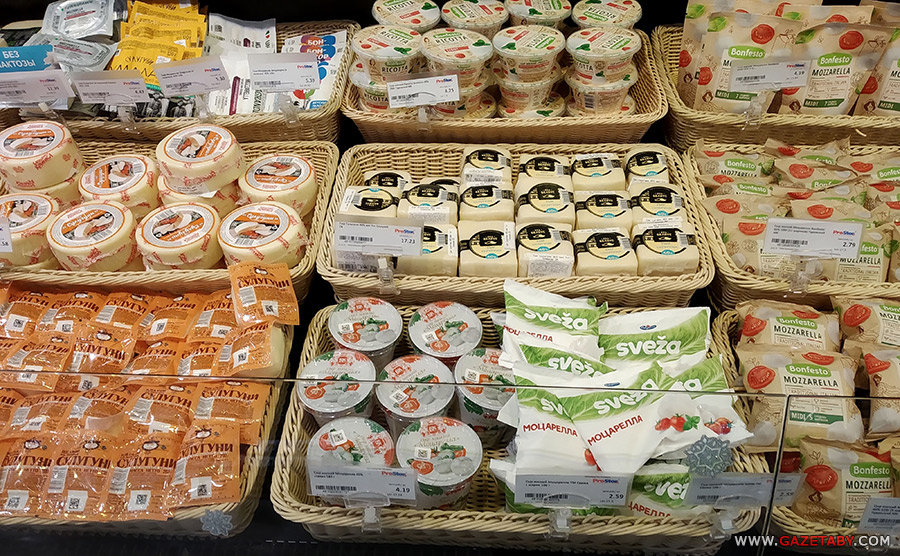
They also took care of fans of meat delicacies. Do you want "unsanctioned" jamon? We have it from Grodno, the price is almost 50 rubles per 850 grams. It comes with a holder and a knife. And there is prosciutto from Molodechno, 32 rubles per kilo, bon appétit.
Shelves with Austrian "Himalayan salt", expensive Italian spaghetti are still as full as before. It's not the stock, but the price, which is noticeably high for most consumers.
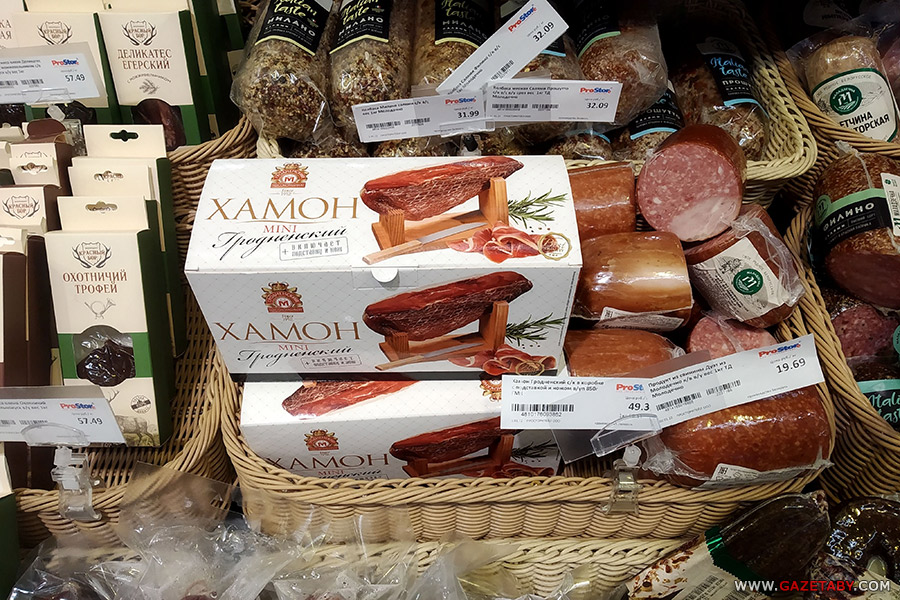
- Look, Belarusian buckwheat," a couple in the grocery department marvels. - But there's no price anywhere. Check the scanner there, how much does it cost? Four rubles for 700 grams? Ah, well, then no miracle, put it back.
Famous chocolates Lindt (made in Italy and Switzerland) are almost lost against the background of boxes with Kommunarka, but there are still plenty of cheaper chocolates from Belgium and Germany - perhaps enough to celebrate not only the old New Year but also February 14.
- They is no sense to buy in," the young mothers argue at the cashier's desk. - If you buy more, the children will eat more quickly, and so it turns out, we work mostly on the toilet bowl. And products are going up in price every month! Do you propose to buy in cereals, flour and sugar, condensed milk stew? Let's buy salt and matches too, otherwise...
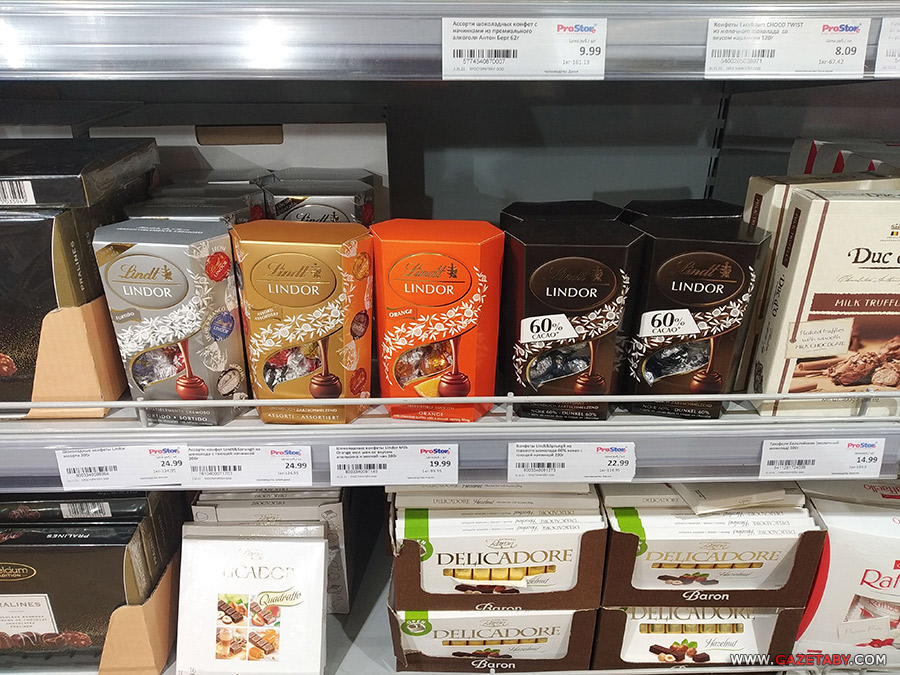
- If there is only one "buy Belarusian" on the shelves without any choice, then we'll see," retorts her friend.









